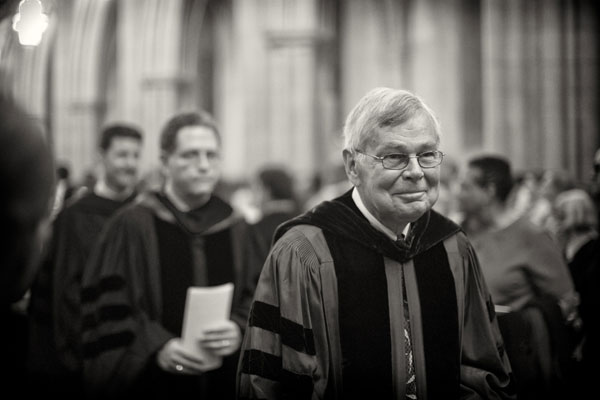 In his discussion of the usefulness of Scripture in moral formation, Allen Verhey, drawing on Alasdair MacIntyre, considers the virtues of prayer:
In his discussion of the usefulness of Scripture in moral formation, Allen Verhey, drawing on Alasdair MacIntyre, considers the virtues of prayer:
Prayer is learned in Christian community, and it is learned not only as an idea but also as a human activity that engages one’s body as well as one’s mind, one’s affections and passions and loyalties as well as one’s rationality. Prayer is an activity that focuses one’s whole self on God. In learning to pray, one learns the good that is “internal to that form of activity”; one learns, that is, to attend to God, to look to God. … In learning to pray, we learn to look to God; and after the blinding vision, we begin to look at all else in a new light.
In learning to pray, we learn as well certain standards of excellence that belong to prayer and its attention to God, standards of excellence that are “appropriate to” prayer and “partially definitive” of prayer.
We learn reverence, humility, gratitude, hope, and care. Prayer-formed persons and the prayer-formed communities — in the whole of their being and in the whole of their living — will be reverent, humble, grateful, hopeful, and caring. One does not pray in order to achieve these virtues. They are not formed when we use prayer as a technique. They are formed in simple attentiveness to God, and they spill over into new virtues for daily life and discernment. (Verhey, Remembering Jesus, 63-64.)